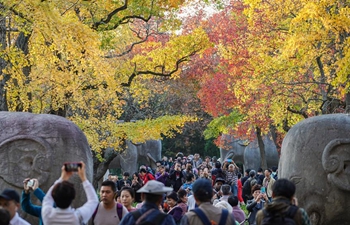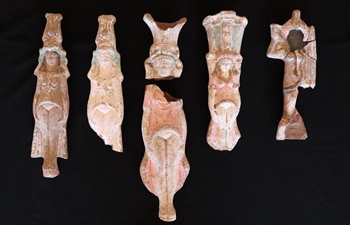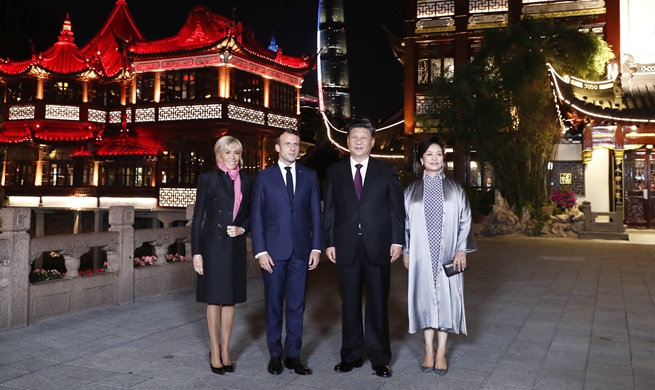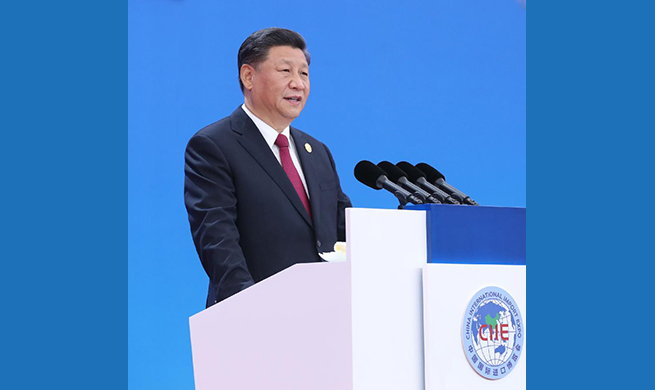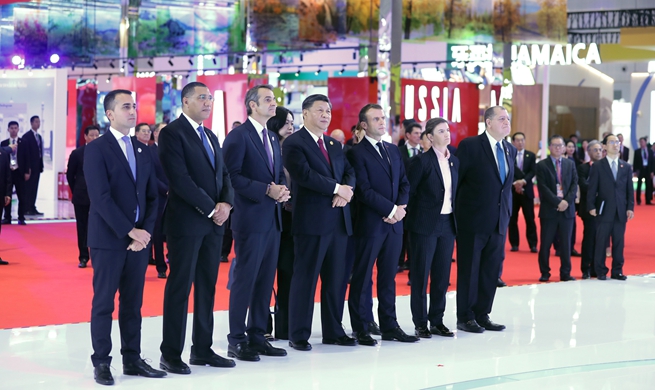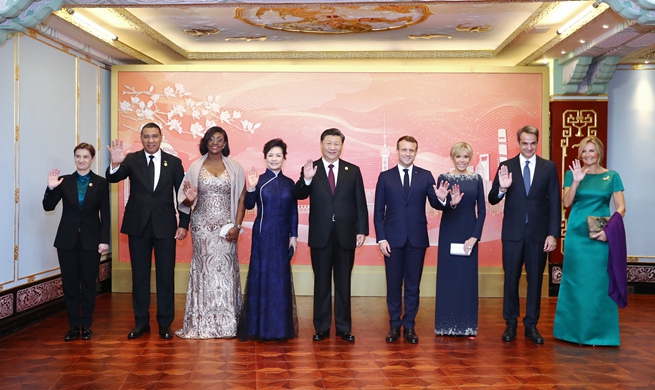ADEN, Yemen, Nov. 6 (Xinhua) -- Yemen's UN-backed government has signed a power-sharing deal with the Southern Transitional Council (STC) under the auspices of Saudi Arabia to end a conflict between the anti-Houthi military factions.
In August, the Yemeni government forces and the STC's military units, both supported by the Saudi Arabia-led coalition, engaged in ferocious fighting over control of the country's south.
The fighting that overwhelmed the southern port city of Aden pushed Saudi Arabia to invite the two-warring rivals to attend reconciliation talks in the Saudi Red Sea city of Jeddah.
The reconciliation talks that took place indirectly between STC's representatives and Yemen's government officials reached a deal to form a new technocrat cabinet of no more than 24 ministers.
Declaring the new power-sharing government will happen within 30 days after the signing ceremony with 50 of the portfolios held by the Aden-based STC that will be also included in future political negotiations to end the war in Yemen.
The Saudi-brokered deal excluded the Iranian-backed Houthi rebels who are still controlling the capital Sanaa and other northern provinces of the war-torn Arab country.
But the Riyadh deal pushed the ordinary Yemeni people to continue their quest for permanent peace and stability to include the whole war-ravaged Yemeni provinces.
"The deal that was signed in Riyadh is a good achievement to end the conflict in southern Yemen and it encouraged people to seek permanent peace," said a youth activist Anwar Ihab.
He said that "stability will prevail in Aden and the southern provinces that witnessed waves of armed confrontations during the past months."
A street vendor Salem Ahmed told Xinhua that a number of positive outcomes of Riyadh deal were noticed in Aden province just one day after ending the signing ceremony in Riyadh.
"No security chaos or tension in Aden and things headed towards de-escalation in Aden and other provinces," said Salem.
The Riyadh deal also concentrated on the economic situation in the impoverished Arab country and placed some economic regulations to confront the collapse of Yemen's currency.
The previous rounds of fighting in Aden between the government forces and the STC's military units badly affected the citizens' livelihoods and ceased the submission of the employees' salaries.
Citizens in Aden are looking forward to seeing qualified officials leading the government institutions in their city and continuing to provide them with basic living services.
"We are without salaries for two months. Some families are struggling to find one meal in Aden after the cut of their monthly payments," said an Aden-based citizen Hisham Yahya.
"What concerns us is citizens are getting our salaries and other basic services regularly because we don't have any support from organizations," he said.
Other citizens believe that the upcoming cooperation and partnership between the two political rivals will be reflected in improving the situation in Aden and elsewhere in the country's south.
"After signing the deal in Riyadh, things may be changed better in Aden as a result of mutual trust and respect between the officials," said a young boy named as Mukhtar Saad.
Tuesday's signing ceremony was attended by Saudi Crown Prince Mohammed bin Salman Al Saud, Abu Dhabi Crown Prince Sheikh Mohammed bin Zayed Al Nahyan, Yemeni President Abd-Rabbu Mansour Hadi, President of the STC Aidarus al-Zoubaidi, alongside other Arab and Western officials and ambassadors.
The Saudi crown prince described the deal in a televised speech as "a step toward a political solution to end the war in Yemen."
The deal between the two sides, which are united against the Iranian-backed Houthi militia, initiates a new stage of cooperation in the area under their control, he added.
The main points of the deal also included the return of the exiled Hadi government to Aden within seven days, and the unification of all military formations under the authority of the ministries of interior and defense.
The impoverished Arab country has been locked in a civil war since late 2014, when the Houthis overran much of the country and seized all northern areas including the capital Sanaa.








